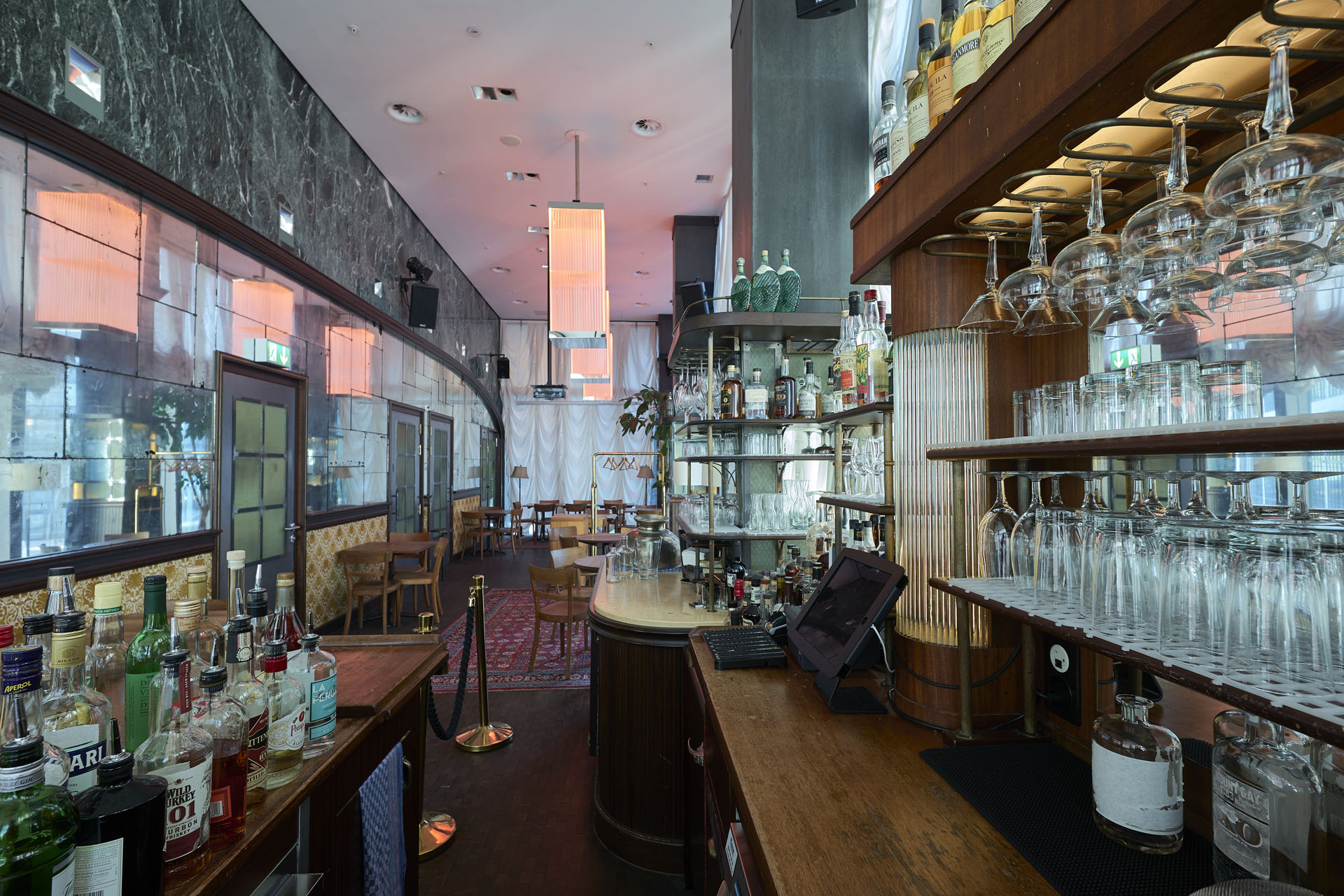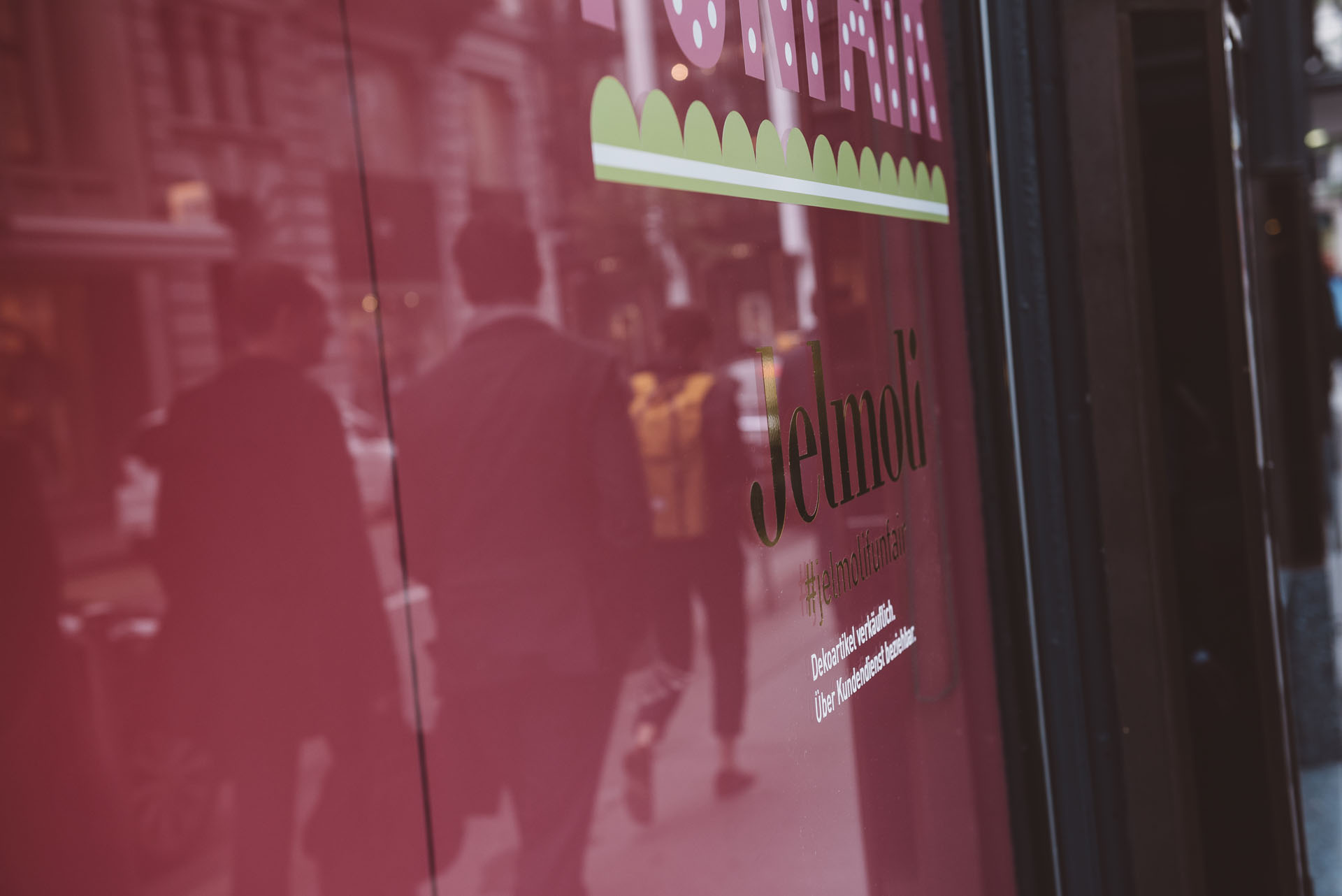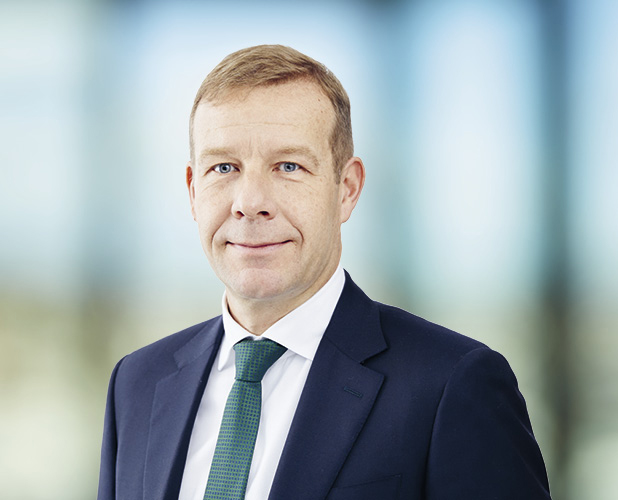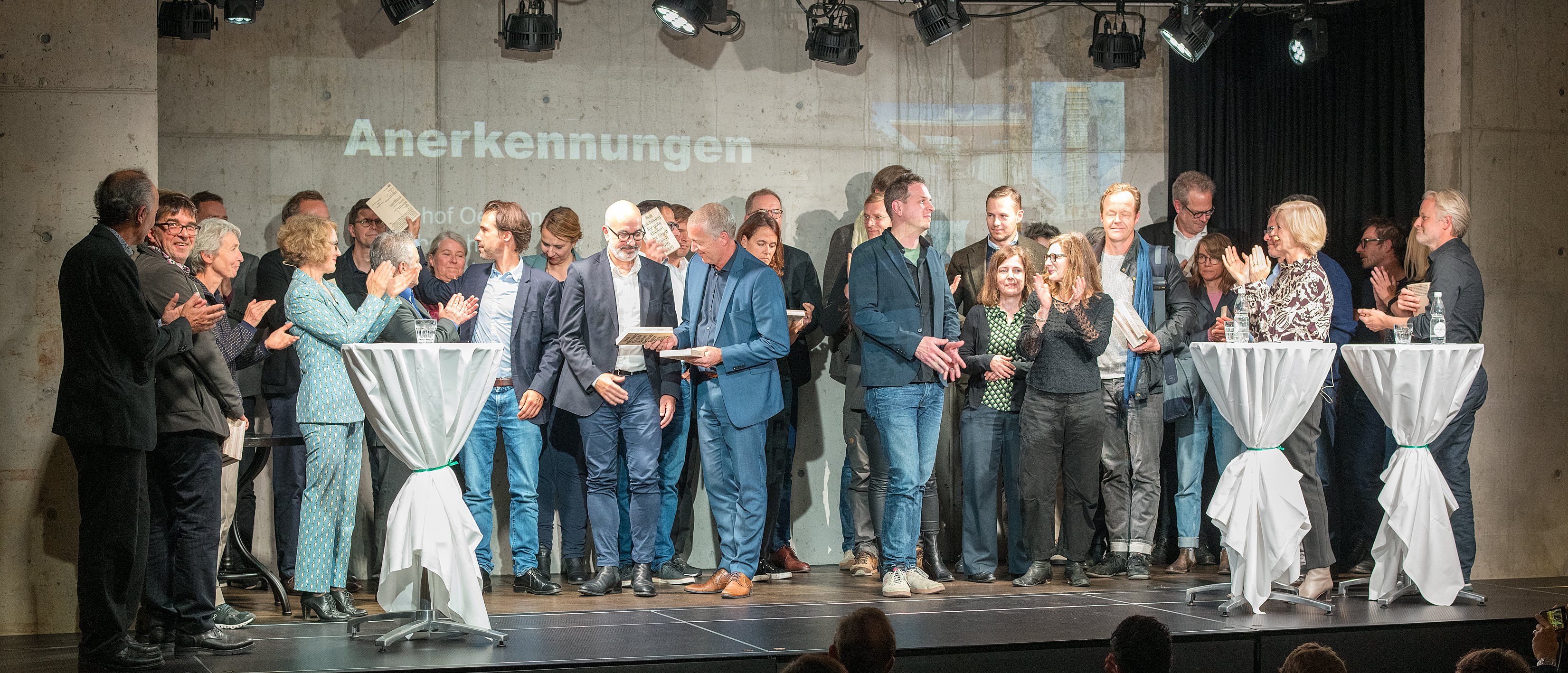2020 was a year that demanded much from us, both as people and as a community, and presented us with many challenges. The COVID-19 pandemic and its implications significantly impacted our social lives and our economy. The resulting «quake» was clearly and immediately felt both by the Swiss real estate industry and by us – the country’s largest listed real estate company. However, the crisis also presented us with opportunities: Swiss Prime Site worked with its customers to take swift and efficient action and find solutions. Internal processes were optimised with and for employees and real estate projects were advanced well, despite the tough conditions.
Despite the adverse circumstances, the 2020 financial year was successful for Swiss Prime Site, with overall positive results. One important milestone was the strategic sale of the Tertianum Group, completed in the first quarter of the reporting year. The impact of this structural change within the group resulted in an operating income of CHF 792.9 million [CHF 1 258.8 million]. EBIT, however, rose by 21.3% to CHF 762.3 million. The sale of Tertianum contributed significantly to the pleasing result, adding CHF 204.2 million. This includes real estate portfolio revaluations of CHF 203.4 million [CHF 203.4 million]. Considering the economic and social uncertainties, this is an impressive result and reflects the high-quality locations in the portfolio. The total fair value of all properties held by Swiss Prime Site as at the end of 2020 is CHF 12.3 billion. The Company generated a profit of CHF 610.4 million [CHF 608.5 million]. While in 2019 the release of deferred tax liabilities due to cantonal tax rate reductions still had a significant impact totalling CHF 172.5 million, this value was only CHF 7.1 million in 2020. Excluding the effect of revaluations and deferred taxes, the group’s profit rose by 51.0% to CHF 476.6 million compared with the previous year.
Coronavirus and its consequences
The 2020 financial year started with positive signs. Reports of the new «coronavirus» in Asia increased significantly only as it started to spread in Europe, and then in our close neighbour, Italy. The virus, case numbers and the potential impact on the Swiss economy and society were the key topic of discussion in the media when the first infections appeared in Ticino at the end of February. The measures to protect the population declared a few weeks later by national and international governments had far-reaching consequences for Switzerland’s economic growth and the real estate market. Bans on gatherings, school and shop closures and the urgent recommendation to stay at home, and work from home, brought public life to a standstill for two months. Relaxations to the restrictions did not come into effect until the end of April, with further steps in the middle of May and then the beginning of June. These ushered in the first, tentative «normalisation phase». The pandemic and the associated government directives, however, had a severe impact on the country’s economic performance. Many companies, and particularly the self-employed, needed emergency loans from the government to keep their head above water.
Swiss Prime Site and its group companies Swiss Prime Site Immobilien, Swiss Prime Site Solutions, Wincasa and Jelmoli were strongly impacted by the strict measures. The main impact was on work processes and general procedures, some of which needed to be completely restructured. On the other hand, Jelmoli, for example, had to shut down almost its entire operations during lockdown. Government directives had a significant impact on individual group companies as well as the group’s operating result. After the first few cases appeared in Switzerland, Swiss Prime Site formed the «Corona» working group. It included decision makers from Swiss Prime Site Immobilien, Swiss Prime Site Solutions, Wincasa, Jelmoli and key departments. The group’s aim is to safeguard the health of all employees while still ensuring that business processes can continue. To that end, the group companies’ work force were recommended or in some cases instructed to work fully or partly from home where possible. Due to the lockdown, Swiss Prime Site Immobilien, Swiss Prime Site Solutions and Wincasa received a total of more than 3 000 tenant enquiries; despite the challenging political circumstances, these were nearly all dealt with individually and a solution found that satisfied all parties. The majority of the enquiries were from tenants in the non-food retail, gastronomy and hotel sectors. Most customers were offered the option of deferring their rent, giving them some extra time. Customers with monthly rent up to CHF 5 000 or CHF 15 000 respectively were offered substantial support in the form of gradual rent waivers or reductions. In the process, Swiss Prime Site waived rental income, providing support in a difficult time to key tenant groups who were significantly affected. Across the group, almost all requests were resolved individually. Jelmoli had to shut all spaces except the food department and put all sales employees on short-time working hours. The almost total closure of the premium department store for two months had far-reaching consequences on revenue and results. Even though there was a significant recovery effect from the middle of the year, it was not possible to offset the deficit caused by the closure in the reporting year.
«Despite the adverse circumstances, the 2020 financial year was successful for Swiss Prime Site, with overall positive results.»
In autumn 2020, the «second wave» of the pandemic arrived. For some regions (particularly Western Switzerland) and branches of industry (sporting and cultural events), this had drastic consequences. Generally speaking, due to the relatively reasonable restrictions on public life, economic prospects were not further dampened, with mid-year results in line with expected results for the reporting year.
Real Estate segment
In view of the circumstances, the Real Estate segment performed well in the reporting year. Operating income was CHF 482.9 million [CHF 519.5 million]. The fall in rental income to CHF 431.0 million (−1.4%) is due to the concessions granted to tenants who were significantly impacted by the pandemic. In terms of the operating result, the segment reported EBIT of CHF 555.0 million [CHF 572.9 million]. This includes profits from sold portfolio and development properties amounting to CHF 34.8 million. The fair value of the property portfolio rose to CHF 12.3 billion. The increase of CHF 557.2 million is due to completed projects added to the stock and the significant revaluation gains mentioned previously. The vacancy rate increased year on year from 4.7% to 5.1%, although that still marks a substantial improvement compared with the mid-year level of 5.4%. This achieved the subgoal of bringing the vacancy rate back down to within reach of 5%. This is because, despite the lockdown, modern, flexible properties in optimal locations for a range of types of use remained attractive to tenants and were in demand. Overall in 2020, Swiss Prime Site let or re- let around 85 000 m2 (5.1% of the total space) and re-negotiated or extended expiring agreements. We also handed over large spaces in completed projects to anchor tenants throughout the year. YOND in Zurich is fully let except for two small spaces. After the hand-over of apartments to over 140 tenants in the Schönburg building in Berne, a hotel, food shop and fitness centre were completed on the site in spring. In the north of Basel city, the major «Stücki Park» project made further important progress. The completion of the Stücki Village, the multiplex cinema, connecting sky walk and the first two new laboratory and office buildings mark milestones that position the site for long-term success. In JED in Schlieren, too, the attractive and modern spaces were handed over as agreed to the two key tenants, Zühlke and Halter. The building permit has been issued for the new building. To further increase the sustainability of the building, which has been planned without ventilation, cooling or heating, the building will be constructed using the secondary building material «zirkulit». This is the first large-scale production of recycled concrete in Switzerland. To make the JED site even more appealing and further raise its profile, a comprehensive event and gastronomy concept has been developed, and in consultation with the Schlieren authorities, the tram stop next to the site has been renamed «JED». Anchor tenant Elektro-Material AG started business from the West-Log building in Zurich in the second half of the year.
«The portfolio vacancy rate was noticeably reduced over the six months, from 5.4% to 5.1%. This achieved the subgoal of bringing the vacancy rate back down within reach of 5%.»
Despite the unique circumstances in the 2020 financial year, projects under construction continued with almost no delays. At the end of the reporting year, the project pipeline included projects under construction with an investment volume (including land) of CHF 1 080 million. Further projects with an investment volume (including land) of CHF 640 million are in development. Building permits have been issued for the projects Alto Pont-Rouge in Geneva, the JED new build in Schlieren, Stücki Park II in Basel and Tertianum in Lugano-Paradiso. Due to the unusual situation, marketing activities in 2020 could not be carried out in full. Based on the attractiveness of the properties and sites, Swiss Prime Site expects good market take-up of the spaces. The planning application for the modification of the building on Müllerstrasse in Zurich, which is already let, has been submitted. The architecture competition for the new development at the Maag site in Zurich has taken place. Two entries are now being thoroughly assessed, with a decision expected in the first half of 2021.
Services segment
The cumulative operating income of the segment, comprising the group companies Swiss Prime Site Solutions, Wincasa and Jelmoli and, for two months, Tertianum, amounted to CHF 378.2 million. The significant difference compared to the previous year is due to two special effects. Firstly, Tertianum was sold and deconsolidated at the end of February 2020. Secondly, Jelmoli’s revenue was significantly impacted by the pandemic and the associated lockdown and closure of the premium department store. The operating result (EBIT) was CHF 207.3 million compared to CHF 55.5 million in 2019. This exceptionally positive result was due to the profit of divestment of CHF 204.2 million from the Tertianum Group transaction.
In the reporting year, the real estate asset manager Swiss Prime Site Solutions significantly enhanced its profile, strengthened its organisation with the addition of more experts and started the gradual expansion of planned services for existing customers. The decision was also taken to further expand the product range. Three capital increases and associated acquisitions and the consolidation of immoveris increased the assets under management from CHF 2.3 billion at the end of 2019 to CHF 3.0 billion.
In a tight market, the integrated real estate services provider Wincasa increased assets under management to CHF 72.0 billion. In light of the current situation, this is a considerable achievement. The pandemic also left behind clear traces in the group company’s income statement. Handling more than 2 000 tenant enquiries resulted in significant additional expenses and personnel costs. At the same time, the whole organisation is involved in the ongoing transformation and digitalisation of the business model. This has two key objectives. Firstly, to significantly simplify, modernise and automate residential services. Secondly, to expand the range of services for major customers in the area of sites and centre management.
«The changes effected in the autumn are intended to make the Swiss Prime Site Group more sustainable and more resilient to market distortions and possible further exceptional events.»
In addition to coping with the pandemic, Jelmoli conducted a review of their strategy and, as a result, worked more on their range, customer focus and presence. Major changes have taken place under the new management, the impact of which should already be felt in 2021. As well as the main location in Zurich, Jelmoli has also operated two smaller locations at Zurich Airport since 2020. Due to the pandemic, these were either closed shortly after they had started operating (Airside) or fully opened after a delay (Circle). The planned opening of the new online store was postponed to spring 2021. Jelmoli’s management hopes that these three new «locations» will give the business significant momentum and bring positive results.
Strategic adaptation
The Board of Directors of Swiss Prime Site worked with the management to adapt the group’s strategic alignment. This adaptation was clearly necessary after the successful sale of Tertianum and has gained momentum over the course of an exceptional 2020. The changes effected in the autumn are intended to make the Swiss Prime Site Group more sustainable and more resilient to market distortions and further exceptional events. Specifically, it was agreed that the portfolio of first-class, value-retaining and attractive properties should remain stable at around CHF 12 billion and the quality of yields should be increased through a range of measures. In terms of the core business, the pipeline will be implemented according to plan. Most projects will be included in the portfolio in order to increase rental income. Where the opportunity presents itself, developments and properties that no longer suit the portfolio will be sold and the resulting capital «recycled» more profitably. Two further initiatives relate to the composition of type of use (reduction in retail proportion) and the medium-term significant reduction in vacancies. In the Services segment, in future there will be a greater focus on real estate asset management and the Swiss Prime Site Solutions group company. Growing the existing investment products and expanding the product range should significantly increase the contribution to the group over the next few years. The transformation of Wincasa and the resulting improvements in operational excellence should return the service provider to its customary profitability. Expanding the Jelmoli locations and further operational steps will lead to a break-even result for the premium department store in the medium term.
«For the 2021 financial year and beyond, the management of Swiss Prime Site expects market opportunities for office floor space to remain sound.»
Outlook
For the 2021 financial year and beyond, the management of Swiss Prime Site expects market opportunities for office floor space to remain sound. This assessment for Switzerland is based on the shortest commuter times in Europe, an occupancy rate for office floor space that was adapted to new working models even before the pandemic and the need for more distancing and common areas. The situation for retail remains challenging. Here, Swiss Prime Site expects continued positive demand for bricks-and-mortar retail in good locations. The retail space portfolio is primarily situated in premium locations. If the general situation for tourism returns to normal in the medium term, there will be good opportunities once again for hotels and events.
In view of the development projects that were completed in 2020 and are largely fully let, Swiss Prime Site expects rental income to rise in 2021, subject to unforeseeable upheaval linked to the coronavirus pandemic. The vacancy rate in the portfolio will be reduced to below 5%. On a medium-term horizon, Swiss Prime Site is standing by the targets communicated in October 2020.











